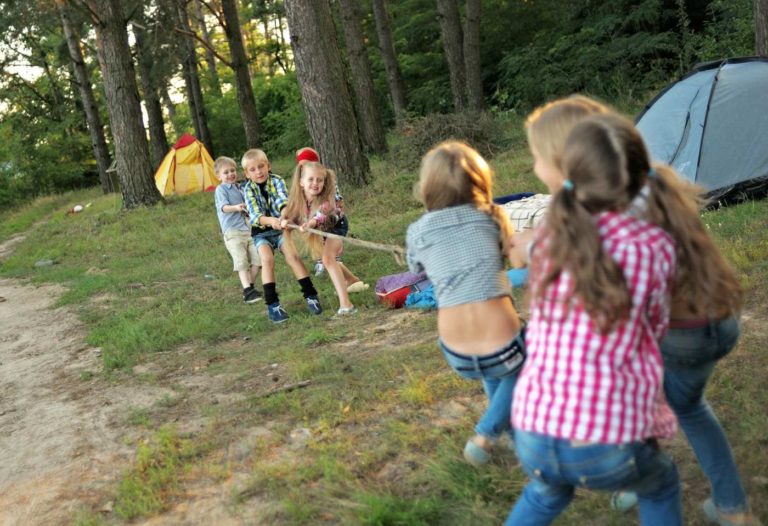
By now you’ve likely heard that technology – especially the kind found in a smartphone – has been likened to ‘digital heroin,’ as addictive to the brain as real drugs. But did you know summer camp is a wonderful path to digital detox?
There is a growing body of research to suggest this notion of addiction to digital technology is more than simple armchair psychology or simply the hysterical rants of stressed-out parents unable to get their kids to disengage from digital technology.
 In his book, “Glow Kids,” Dr. Nicholas Kardaras says that brain images have proven that digital screens can generate just as much pleasure (in the form of dopamine releases) as sex. Other research is connecting screen time to a host of ailments, including depression, anxiety, ADHD, addiction, and more. It can get so bad, says Kardaras, that a child’s brain eventually can show the same damage as if it was addicted to cocaine.
In his book, “Glow Kids,” Dr. Nicholas Kardaras says that brain images have proven that digital screens can generate just as much pleasure (in the form of dopamine releases) as sex. Other research is connecting screen time to a host of ailments, including depression, anxiety, ADHD, addiction, and more. It can get so bad, says Kardaras, that a child’s brain eventually can show the same damage as if it was addicted to cocaine.
So what’s a parent to do, particularly in an age when schools are actually introducing more screen time in the form of laptops, tablets, and other digital learning devices? One answer: send your kids away to camp, where the digital tech is strictly verboten.
In an All Things Considered podcast that aired earlier this year, reporter Anya Kamenetz visited a number of summer camps which, as she noted, enjoy the unique distinction of being one of the nation’s only ‘tech-free zones.’
According to the American Camp Association, fewer than one-fifth of the nation’s more than 8,400 overnight camps permit and kind of Internet connectivity at all, and less than 10% allow mobile phones. Some camps will even evict campers who violate the no-phone policy.
What that all adds up to is a kind of detox for kids otherwise accustomed to spending multiple hours a day texting friends, checking social media channels, and otherwise constantly being plugged in.
Digital Detox for Mom and Dad Too?
Not surprisingly, many if not most of the kids struggle going cold turkey. But counselors report that, within a few days, not only do their young campers stop missing the tech, they actually start to enjoy themselves in the same ways earlier generations of campers did: by going for hikes in the woods, canoeing, horseback riding, playing games, and simply talking with each other, face to face.
What is surprising when it comes to the tech-free policies, however, is that parents often turn out to be a bigger problem than their kids. “We started to hear from camp directors … that parents were the most problematic areas of a camp experience,” Barry Garst of Clemson University told Kamenetz.
Garst, who researches youth development, said counselors have told him modern ‘helicopter parents’ will demand constant updates about their kids. How often? One counselor said “up to 100 messages a day.”
“The number one concern is the separation that parents feel, and the difficulty in accepting a different type of communication with their child when their child is at camp,” said Garst.
To combat the problem, camps are putting in place training policies that help not just campers – but parents – understand that camp is a tech-free zone and that this policy is good for all involved – most notably, kids, who need to disconnect to rediscover the natural world around them.
